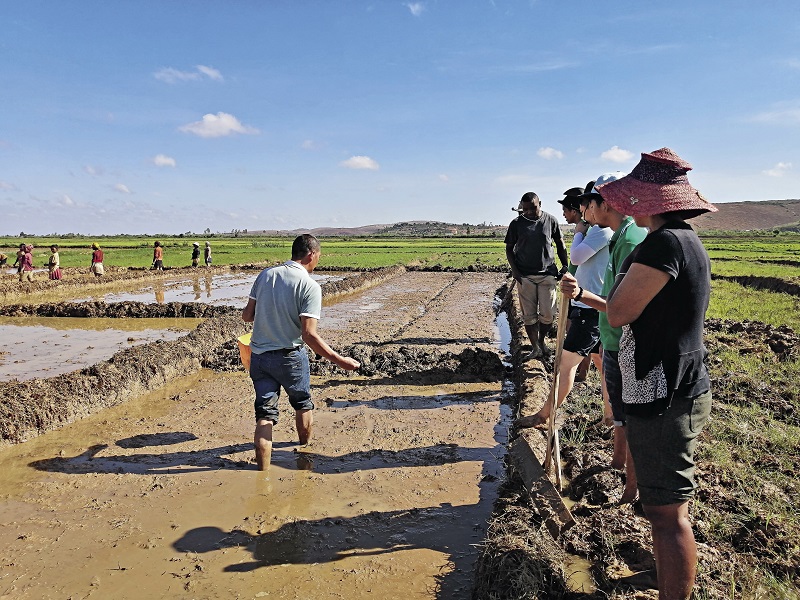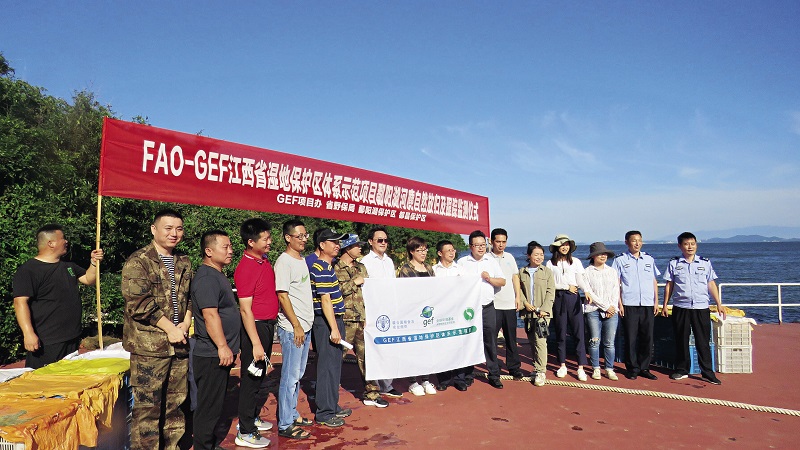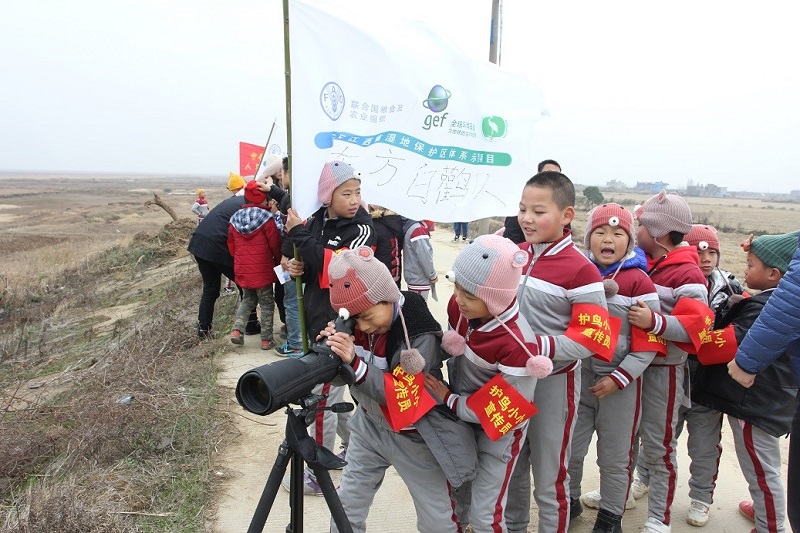Despite the rampant COVID-19 worldwide, as the country has effectively brought it under control, China recently declared its decisive success in eradicating extreme poverty. The next focus of the Chinese government is rural revitalization, which aims to bring works relating to agriculture, rural areas, and rural people to a higher level.
As a major supporter of China’s rural revitalization drive, the Food and Agriculture Organization (FAO) of the United Nations in China has been on the move to contribute its part by cooperating with the Chinese government. Meanwhile, through its partnership with the FAO, China has been quite active to provide its assistance to many developing countries in the agriculture field. After China launched its 14th Five-Year Plan, there has been a positive outlook toward China’s agricultural development and its cooperation with the rest of the world in agriculture.
China Today interviewed FAO representative to China Carlos Watson, who shared his views on a wide range of topics, including cooperation with China, China’s contribution to the global agricultural development, sustainable development in rural areas, and challenges for global food security and agricultural development.
China Today: Since its establishment in 2009, the FAO-China South-South Cooperation Program has benefited lots of people in Africa and Asia. A project in Cape Verde was recently launched. What support and promotion did the FAO raise for the project?
Carlos Watson: This February, the FAO-China South-South Cooperation (SSC) Program contributed US $1.5 million to launch its 16th national level project in the Republic of Cape Verde, focusing on capacity development for production systems to enhance food and nutrition security in the country.
This three-year project was jointly identified and formulated by the FAO, the government of Cape Verde, and the government of China. It will assist the Cape Verde government in undertaking capacity development activities at all levels, through different modalities such as study tours to China and field training in Cape Verde. Specific priority areas to be supported by the Chinese experts and technicians during this three-year project include agricultural production, pest control, livestock, and seaweed aquaculture.

A Chinese expert dispatched by the FAO-China SSC Program teaches local farmers in Madagascar about hybrid-rice planting. Photo Courtesy of FAO
China Today: Last year, the FAO and Zhejiang University jointly held a forum on the digital transformation of rural areas. What do you think about the digital development in China’s rural areas? Has the FAO planned any activity to promote digital transformation in China’s rural areas?
Carlos Watson: Last year, FAO and Zhejiang University successfully co-organized the forum and the Global AgriInno Challenge 2020 intended to empower youth through innovation and entrepreneurship. In China, the rural digital economy is accelerating based on the fast-growing technologies empowered by both national and private sectors. As a consequence of the COVID-19 pandemic, interpersonal activities have been reduced, and small producers, especially the rural ones, have once encountered difficulties in marketing their products. In this regard, China can share with other countries about its experience and best practices on e-commerce connecting smallholder farmers with markets.
Getting access to financial services remains one of the principal challenges that youth and small and medium size enterprises face when investing in agriculture and food systems. From this perspective, and echoing what the forum last year promoted, several actions could address the further promotion of digital transformation: first, review the opportunities, challenges, institutional models, and successful digital actions and experiences on rural financial and production chains; second, explore how rural finance, via digital channels, can serve as an excellent tool for youth entrepreneurship and family farming; third, build an enabling environment to strengthen a joint operation involving multi-sectors that benefits the youth and small and medium size enterprises in seeking financial resources in the post-COVID 19 era.
China Today: On November 26, 2020, the World Bank released an analysis of global food prices in the post-pandemic era, which predicted that food prices would climb. Amid economic uncertainties, what are the challenges facing the food and agriculture sector?
Carlos Watson: At FAO, we adopt the Food Price Index to measure the monthly change in international prices of a basket of food commodities. It consists of the average of five commodity group price indices weighted by the average export shares of each of the groups over 2014-2016. The FAO Food Price Index (FFPI) averaged 116.0 points in February 2021, marking actually the ninth month of consecutive rise and reaching its highest level since July 2014.
The increasing food price is taking place on top of a series of pressures, including rapid population growth, urbanization, growing wealth, and consequent changes in consumption patterns that are already challenging our food systems’ capacity to provide enough nutritious food.
Responding to these challenges and feeding a global population of almost 10 billion by 2050 require a systems-based approach that is carried out in a holistic and sustainable manner. This is what we call a transformation towards sustainable development of food systems.

A ceremony of releasing and monitoring Chinese water deer in Jiangxi Province is held in the summer of 2020. Photo courtesy of FAO-GEF Jiangxi Project (GEF: Global Environment Fund)
China Today: China has provided assistance to many developing countries in the world, what are your thoughts on China’s contribution to global agricultural cooperation?
Carlos Watson: As reflected in its support to the FAO, China has been acting as a significant participant and active supporter of FAO’s SSC Initiative since 1996. This has been in line with a changing trend from a one-way development assistance from FAO to China, to a two-way collaboration, sharing China’s experience in agricultural development and food security. What is more, in 2009, the government of China provided substantial funds for the establishment of an SSC Trust Fund. This was a milestone in the development of the FAO-China partnership, raising our cooperation to a new level. To date, a total of US $130 million have been provided by China to support FAO’s efforts in alleviating poverty and increasing food security.
FAO greatly values China’s willingness to work with and through the Organization in a variety of ways. Going forward, the partnership between China and FAO will remain vital for the provision of cutting-edge policy advice, technical assistance on food security and safety, sustainable agricultural development, the management of natural resources, surveillance and control of trans-boundary animal and plant diseases, protection of agricultural heritages, climate change, private sector development, gender equality, and broader efforts to achieve a Zero Hunger world.

FAO-GEF Jiangxi Project organizes a regular activity for primary school students to watch migratory birds in winter. Photo courtesy of FAO-GEF Jiangxi Project
China Today: This year marks the start of China’s 14th Five-Year Plan. On February 21, China unveiled its “No. 1 Central Document” for 2021, which is about agriculture, rural areas, and farmers, stressing the efforts to comprehensively push forward rural revitalization and accelerate the modernization of agriculture and rural areas. What is your expectation for sustainable development in China’s rural areas over the next five years?
Carlos Watson: It is highly commendable that China has been putting the issues relating to agriculture, rural areas, and farmers on the top of its development agenda over the past several decades. Since 2004, the No.1 Document issued by the central government of China has been casting its focus on issues related to food security. This is an absolute indication of China’s strong commitment in promoting sustainable development in the agriculture sector.
The ultimate goal of rural revitalization is to build the country’s rural areas with “thriving businesses, pleasant living environment, social equity and civility, effective governance and prosperity,” as stated in the report delivered by President Xi Jinping at the 19th National Congress of the Community Party of China in October 2017.
Great alignment is seen between the vision for rural revitalization and what we at FAO have been advocating for – sustainable, inclusive, and resilient food systems for better production, better nutrition, a better environment, and a better life.